#baby formula shortage
Text
things that have happened in the decade we call 2020
covid
mass purchasing of toilet paper
that big australia fire
murder hornets
beirut explosion
the whole 2020 u.s. election mess
u.s. capital stormed
spacex
my cat died
russia invading ukraine
large baby formula shortage
monkeypox
roe v wade overturned
nasa's james webb space telescope
the whole uk government mess thing
queen elizabeth II dying 🦀
more uk government insanity
elon musk buying twitter
andrew tate getting arrested for human trafficking after getting owned by greta thunberg
oceangate
x. just x. im never going to be able to look at that letter the same (which sucks because i think it's a pretty cool letter)
strikes strikes strikes!
i'm no longer updating this because looking at all this bad stuff has been bringing me down lately. feel free to continue this yourself if you're interested in it tho!
#i'll NOT continue to update it as this hellish decade goes on#2020#2021#2022#corona virus#australia fire#murder hornets#beirut explosion#2020 us presidential election#capital stormed#spacex#ukraine#russia#baby formula shortage#monkeypox#roe v wade#james webb telescope#uk resignations#queen elizabeth ll#queen elizabeth#uk government#elon musk#twitter#greta thunberg#andrew tate#oceangate#twitter x#x#strikes#strike
84 notes
·
View notes
Text

A deadly bacteria outbreak in baby formula and an ongoing formula shortage stem from issues some economists characterize as “rot” in the nation’s economic system: prioritization of shareholder wealth and consolidation.
The embattled baby formula producer Abbott used windfall profits to enrich investors instead of replacing failing equipment that was likely injecting the dangerous bacteria into its infant nutritional products, financial records and whistleblower documents show.
Abbott detected bacteria eight times as its net profits soared by 94% between 2019 and 2021. And just as its tainted formula allegedly began sickening a number of babies, with two deaths reported, the company increased dividends to shareholders by over 25% while announcing a stock buyback program worth $5bn.
“Abbott chose to prioritize shareholders by issuing billions of dollars in stock buybacks instead of making productive investments,” said Rakeen Mabud, chief economist for the Groundwork Collaborative, a progressive economic advocacy group. “It’s important that we have high standards for something as vital as baby formula.”
Abbott denies share buybacks hurt safety but the controversy has some economists calling for stricter anti-trust enforcement, bans on buybacks and limits on dividends.
The tainted product triggered a February recall of three popular Abbott infant formulas, including Similac, when batches likely tainted with the rare Cronobacter bacteria killed two infants and sickened two more. The FDA and CDC reported the babies “consumed formula produced at the Sturgis, Michigan” facility before they got sick, and the bacteria “may have contributed” to their deaths.
Abbott halted production at the Sturgis plant, the nation’s largest, but the company has since downplayed the controversy and claimed “there is no evidence to link our formulas to these infant illnesses”. Federal investigators said it was not clear either way. “Right from the get-go we were limited in our ability to determine with a causal link whether the product was linked to these four cases, because we only had sequences on two,” FDA’s food director Susan Mayne said in a media briefing on Monday, ABC News reported.
Regardless, the operation remains paused, and the deep cut into the nation’s formula supply is partly a result of consolidation: Abbott and three other companies control nearly 90% of the market, Mabud said, and Abbott alone makes 43% of US formula.
“When Abbott halted production that whole market was disrupted, and the result was desperate parents around the country couldn’t feed their babies,” Mabud added. “We don’t have a resilient supply chain, not for baby formula and not for a whole host of other goods.”
In the two years ahead of the recall, Abbott’s net profits jumped from $3.6bn to $7.1bn, its operating margins improved, and revenue in the US pediatric nutritional division increased by about 16%, Securities and Exchange Commission filings show. Company executives in earnings calls attributed the new pediatric nutritional revenue to market share gains and price increases, while COVID tests were a boon to the parent company.
The federal whistleblower complaint alleged some of the Sturgis plant’s equipment that caused the bacteria to get in the product “was failing and in need of repair”, and company management was aware of the issue for up to seven years ahead of the outbreak.
“A number of product flow pipes were pitting and leaving pinholes. This allowed bacteria to enter the system and, at times, led to bacteria not being adequately cleaned out in clean-in-place washes,” the report reads. “This, in turn, caused product flowing through the pipes to pick up the bacteria that was trapped in the defective areas of the pipe.”
The problems are not limited to ageing equipment, according to the whistleblower. Management at the plant also falsified records, improperly trained employees, and successfully hid health and safety risks from the Food and Drug Administration auditors in 2019.
Companies like Abbott are “using every product as a personal ATM” by cutting corners to maximize profits, said Moe Tkacik, a senior fellow at the American Economic Liberties Project.
In the short term, Joe Biden has invoked the Defense Production Act to speed production of infant formula and authorized flights to import supply from overseas, while the FDA approved a deal with Abbott to bring the Sturgis plant back online within several weeks.
But long-term solutions will require more bold steps, Tkacik said, like a ban on buybacks and restrictions on dividends. She acknowledged such ideas are dismissed as “socialistic”, but noted buybacks were illegal until 1982 because they were considered a form of manipulation. Annual buyback program expenditures among S&P 500 companies are often exceeding research and development or other investment, Tkacik said.
Restrictions on dividends are reasonable for companies that receive federal funding or whose largest customers are federal programs, like Abbott, she added.
A spokesperson for Abbott said: “Stock buybacks are not impacting our ability to invest in or reopen our Sturgis manufacturing facility; in fact, our strong balance sheet has allowed us to invest in our facilities, including in Sturgis, and will help us make additional investments and more quickly restart the facility.”
The Senate Finance Committee chair Ron Wyden on Wednesday requested information about Abbott’s stock buyback program.
Mabud said Congress and the President need to use the “wide array of policy tools that are on the table” to address consolidation, including breaking up companies when appropriate, empowering the FTC, taxing companies appropriately, and investing in diversification in consolidated industries.
“We need to make sure children can get the nutrients that they need – I think we can all agree on that – and these giant corporations … need to be held to account for the vulnerabilities that they’ve created and the quality of the product that they put on the market,” Mabud said.
#us politics#news#twitter#tweet#keith devlin#president joe biden#biden administration#defense production act#baby formula shortage#baby formula#abbott baby formula#abbott#2022#Groundwork Collaborative#Rakeen Mabud#food and drug administration#fda#cdc#center for disease control and prevention#abc news#corporate greed#Securities and Exchange Commission#American Economic Liberties Project#Moe Tkacik#Senate Finance Committee#sen. Ron Wyden
75 notes
·
View notes
Text
So I know that the formula shortage is a huge problem BUT one of the Posts I've seen a couple times sharing a homemade formula recipe was posted by Tradwife and prolife blogs. I know a lot of the people that are sharing the information aren't looking at URLs so it's not intentional to share their ideals. Anyways here's the WHO recipe they were sharing.
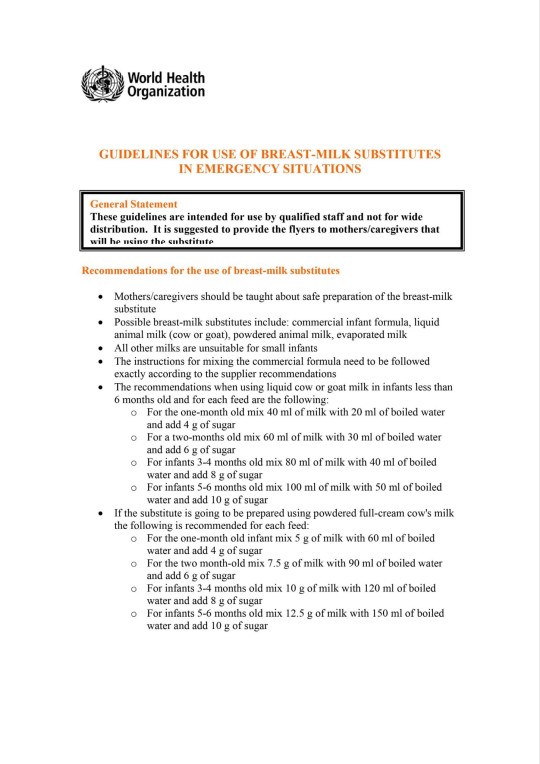
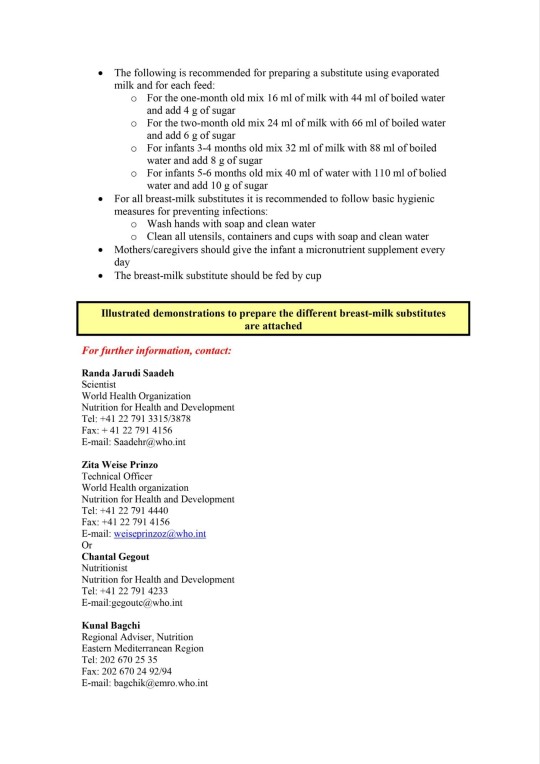



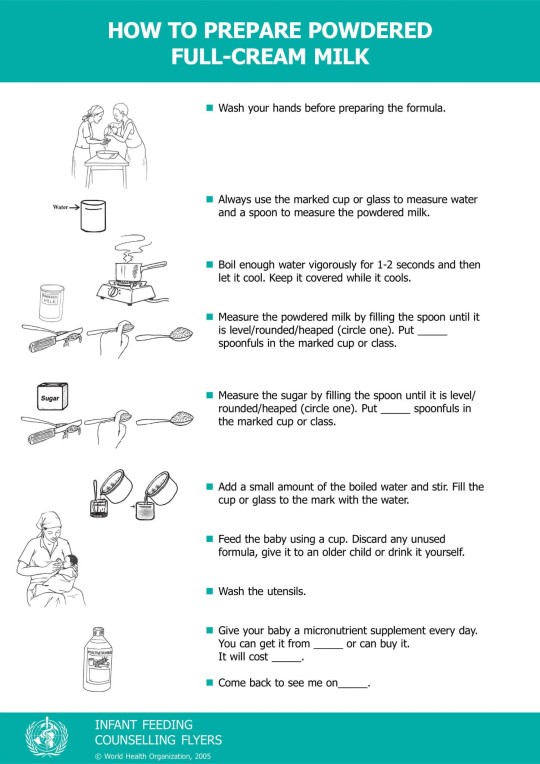

Not having formula for your baby is a huge issue and I hope this helps.
74 notes
·
View notes
Text
I say we start assassinating muthafuckas and by muthafuckas I mean the bitch ass 192 GOPs the voted AGAINST making sure babies had formula to eat.
How the fuck are you so evil you dont want babies to eat because it cant turn a monetary profit???
Like I know yall hate WIC and food stamps that actively feed needy families because you were greedy and fear mongering and hate the poor you've ugly, selfish policy create but now yall dont want anybody's baby to eat???
AND yall wanna force women to have more babies????
Yall deserves the deepest layer of Hell possible, like right next to Lucifer's office.
#baby formula shortage#Republicans are fucking evil and i wont argue about it#Democrats are fucking lazy amd complicit and i womt argue about it
35 notes
·
View notes
Text
This is why I can not stand people who reduce the abortion debate to only nine months. Many mothers are not able to feed a baby solely on breast milk.
10 notes
·
View notes
Text
youtube
Please checkout my music video about the current state of politics. How does Trump’s record compare to Biden’s? Find out here.
Let’s Go Brandon!
#let’s go brandon#MAGA#illegal immigration#border wall#political satire#Hunter Biden#Putin Price Hike#Gas Prices#Mexican Drug Cartels#Fentanyl#Baby Formula Shortage#Donald Trump#Fair Elections#president joe biden#fossil fuel#US Energy#Youtube
6 notes
·
View notes
Text
Stealing this cuz op sucked but here's how you make baby formula at home since there's a national shortage

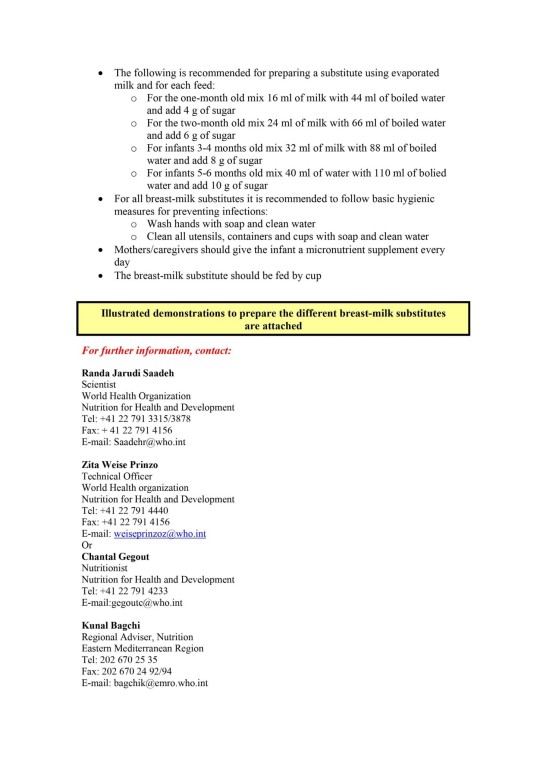





20 notes
·
View notes
Photo

throw him for a complete loop: my mom's breast milk never came in despite having me OTOH when i'm fully active with BDSM including a lot of breast and nipple play despite never having children myself i produce milk and will spontaneously leak through my bra and shirt when babies cry
#baby formula shortage#our shitty education system#and shitty parents who don't teach shit to their kids#real life#breast milk
16 notes
·
View notes
Text
Big Bottle and the Baby Formula Apocalypse
As anyone with an infant knows, there is a major crisis in the feeding of America’s babies right now, because parents in some areas can’t get baby formula. A few months ago, a major producer of formula - Abbott Labs - shut down its main production facilities in Sturgis, Michigan, which had been contaminated with the bacteria Cronobacter sakazakii, killing two babies and injuring two others. Abbott provides 43% of the baby formula in the United States, under the brand names Similac, Alimentum and EleCare, so removing this amount of supply from the market is the short-term cause of the problem. (Abbott and Mead Johnson produce 80% of the formula in the U.S., and if you add in Nestle, that gets to 98% of the market.) The problem is not, however, that there isn’t enough formula, so much as the consolidated distribution system creates a lot of shortages in specific states.
First, it’s hard to convey what a nightmare this situation is for parents, especially those whose children require special kinds of formula because of gastrointestinal issues or food allergies. “The shortage has led us to decide to put a feeding tube in our child,” said one parent, who simply could not get the specialized formula her daughter needs.
Baby formula is not just food, but the primary or sole nutrition for a vulnerable person in a stage of life in which very specific nutritional requirements are necessary for growth. Baby formula was created during the 19th century as we developed modern food preservation techniques. Before this remarkable innovation, baby starvation was common if a mother couldn’t breastfeed her infant (which happens a lot). The invention of industrialized formula was one of those creations we take for granted, but like antibiotics and other medical and scientific advances, it was one that fundamentally changed parenthood and the family.
This shortage is showing just how reliant we are on industrialized formula. The causal factor behind the crisis is poor regulation and a consolidated and brittle supply chain. Imports from Europe are often prohibited, even if there were excess productive capacity elsewhere. I spent a bit of time calling around to people who work in formula, and the industry is basically on a war footing. Everyone is panicking, because the situation is, in short, a nightmare.
I’m going to try and lay out the situation, and explain the market structure. There are two basic mechanisms that have created a concentrated and brittle market. The first is that regulators are tough on newcomers, but soft on incumbents. And the second is that the Federal government buys more than half of the baby formula in the market, and under the guise of competitive bidding, it in fact hands out monopoly licenses for individual states. That makes it impossible to get newcomers of any scale into the market, along with the more resiliency that such competition brings. It also makes it hard to address shortages in one state with extra formula from elsewhere.
But first, let’s start by following the money.
Financial Returns or Your Baby’s Life
The simplest way to understand why there’s a shortage is to look at the incentives for the CEO of Abbott Labs. Here’s a Reuters report coming out of the company’s investor call in April, after the factory shutdown was underway. Keep in mind, the executives on this call are the people responsible for managing this vital resource, and here’s how seriously they took the problem.
“Abbott called the recall a "short-term hindrance" and said it was working closely with the regulator and has begun implementing corrective actions and enhancements to the facility.Abbott shares rose 2.4% to $122.90 in morning trade as some analysts said the comments during the conference call allayed worries over the recall.Despite the recall and supply chain issues, Abbott beat quarterly profit and revenue estimates in the first quarter.”
Not a single Wall Street analyst asked about the recall. Why? In some ways, it’s because it doesn’t matter that much to the bottom line. Abbott Labs is a diversified medical devices and health care company, and its nutritional segment is a relatively small part part of its business. But also, if you need baby formula, which is highly regulated by the Food and Drug Administration, and distributed by a monopoly-friendly system run by the Department of Agriculture, where else are you gonna go?
And that’s the problem. Baby formula is a shared monopoly, and we are at the mercy of Abbott Labs, Read Johnson, and Nestle. And their execs know it. So how does this shared monopoly work? Let’s start with the regulators.
The Failed Priesthood at the FDA
Entering the baby formula market is a difficult process, and takes years of work. For instance, Bobbie, which makes European-style formula with a contract manufacturer, is the first firm to come into the market in five years. Bobbie is also a direct to consumer niche firm, so it doesn’t have the scale to address the market dislocation at hand. It was a rough road getting started; the firm faced a recall and a shut down purely for manufacturing in Germany, and it had to go through millions of dollars of capital and a steep learning curve to get its product accepted by the FDA.
The reason for regulatory hurdles seems good, on the surface. Manufacturing formula is very specific, it’s not like a snack bar, it fits in somewhere between medication and food in the regulatory spectrum. Congress put extremely detailed instructions in the Infant Formula Act of 1980. To get a product approved, an entrant needs protein efficiency studies, thousands of quality tests from raw ingredients to the end product, nutritional tests to make sure it is suitable for infants, and approvals for new suppliers. There are specialized forms of formula for babies with different conditions. Naturally, starting a new formula firm takes a massive amount of time, patience, and capital.
And that’s if you just want to make a product and can even find a contract manufacturer to produce it for you. There is just one contract manufacturer of baby formula in the U.S. - Perrigo Nutritionals, and it requires a large initial order volume, which adds a hurdle to new potential firms. What about new factories? Earlier this year, a nutrition company ByHeart became just the fourth infant formula brand to have its own factory, something no one else had done in fifteen years. Certifying a factory for infant formula, like making a new product, is difficult and expensive.
Is this expense necessary? Not entirely. The institutional risk tolerance of the FDA is extraordinarily low. FDA officials see themselves as an elite priesthood, pursuing excellence merely by dint of being at the FDA. From this perspective, there is zero incentive to let new players into the baby formula market when, in their view, there are already excellent quality companies serving the market, such as Abbott Labs, Mead Johnson, and Nestle. It’s true that baby formula is overpriced in the U.S., costing about twice as much as it does throughout much of Europe. But to an FDA official, price is incidental.
The thinking goes, who wants to be the official that accidentally lets a reckless entrepreneur poison a bunch of babies, just so that there’s some competition in a market that is already delivering good products? When there is no problem at hand, there is no reason to allow innovation in the industry, or additional capacity.
The problem, of course, is that the FDA is harsh to newcomers, but deferential to incumbents. According to Healthy Babies Bright Futures, baby formula made by the big guys in the U.S. is full of dangerous brain-altering heavy metals. HBBF tested thirteen different baby formulas, and every single one had “detectable levels of arsenic, cadmium, lead and/or mercury,” which are all considered to be neurotoxic, interfering with brain development and “causing permanent IQ reductions in children.”
Moreover, FDA inspections of Abbott plants are obviously a disaster. Abbott had old and dirty equipment making formula, falsified records, deceived regulators, had bad product tracing, and did not fix problems after discovery. FDA inspectors noticed problems with the plant in September, but ignored them. Then, a whistleblower told the FDA of these problems in October, but regulators didn’t even bother to interview him/her until December. Moe Tkacik, in a viral Twitter thread, persuasively laid out parallels to the Boeing/FAA disaster.

So that’s the regulatory problem. Then there’s the market structure, which creates a lumpy distribution system when there’s a shortage.
Rebates and Scams
The biggest buyer of infant formula in the U.S. is WIC, or the Special Supplemental Nutrition Program for Women, Infants, and Children, which is run by the Department of Agriculture. Roughly half of women get formula from WIC. Rather than food stamps, which is a set amount of cash that can be used for most products, most states only allow women to buy formula from one company, though each company offers a bunch of different brands.
To save money, the government requires states to hold auctions to get the lowest price for formula. The problem is, state agencies use a complex rebating system to give the contract for the entire state to one manufacturer, and that contract can only be changed once every four years. Here’s the USDA explaining the program.
Typically, WIC State agencies obtain substantial discounts in the form of rebates from infant formula manufacturers for each can of formula purchased through the program. In exchange for rebates, a manufacturer is given the exclusive right to provide its product to WIC participants in the State. These sole-source contracts are awarded on the basis of competitive bids. The brand of formula provided by WIC varies by State depending on which manufacturer holds the contract for that State.
This rebate system distorts the entire market in a state, because it’s just not worth having alternative formulas on a retail shelf if half of the buyers simply cannot purchase those formulas. As a result, the market tips to the WIC supplier, and that supplier raises prices on non-WIC recipients, and does so by between 26-35%.
Here’s what happened to the baby formula market in California when the WIC contract changed hands.

This whole scheme, done under the guise of welfare, is essentially a transfer of wealth from the middle class to the poor, done by enriching the baby formula cartel. The monopoly friendly program design was peddled by the anti-poverty group the Center for Budget and Policy Priorities, which is both on the center-left of the political spectrum and aligned with Wall Street.
This brings us back to the shortage. According to Truthout, Abbott is the monopoly provider of formula for 34 states, seven Indian tribal organizations, four territories and Washington, D.C. So that’s where we’d expect the shortages to be focused. Because of the design of the program, it’s not particularly easy to move different kinds of formula to WIC recipients.
And that, perhaps more than any actual national shortage, is the problem. Here’s the Wall Street Journal today. “The FDA said overall the nation’s infant formula manufacturers are making enough to meet demand even w/out Abbott’s main factory online. The industry sold more formula in April than it did the month before the recall, the FDA said." The White House echoed these claims, asserting that “more infant formula has been produced in the last four weeks than in the four weeks preceding the recall.”
There’s a well-known black market in formula, which speaks to the dysfunction of the distribution system. The shortages are concentrated in certain areas even if nationally there might be enough to get by. According to Heather Bottemiller Evich, there are just “6 states that had baby formula out-of-stock rates higher than 50 percent: Iowa, South Dakota, and North Dakota were 50-51%. Missouri was 52%. Texas was 53% and Tennessee was 54%.” But nationally, it’s not so bad.
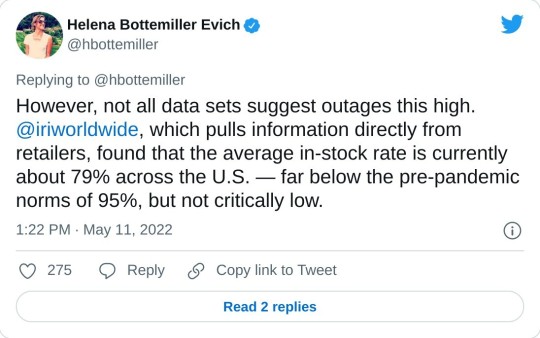
In some ways, the problem is that there’s baby formula, but it’s not in the right place (though the Sturgis factory was a monopoly producer of lots of specialized formulas, so the actual shortage itself is a huge problem). The simplest solution here is to get aggressive and capable leadership around logistics, and then move the formula where it needs to go. We’ll have to open up imports temporarily, and move supply around the country while allowing WIC recipients to buy non-contract brands. I suspect at some point the Biden administration will get their hands on the situation, and fix it. There will be Congressional hearings, and Abbott’s CEO will get yelled at.
Longer-term, I hope there will be consequences. First, we need to explore forcing Abbott to break off its nutritional division from the rest of the firm, since it’s fairly obvious that there’s little corporate focus on making sure the baby formula division is run well. Conglomerates are usually inefficient. Second, Congress should really restructure the WIC program so that the auctions don’t create monopolies, and lumpy distribution patterns that induce regional shortages.
Finally, the FDA needs wholesale reform, since this kind of crisis seems to happen a lot. I mean, the relationship between the FDA and Abbott Labs was also behind the rapid Covid testing scandal, where FDA official Tim Stenzel - who had worked at Abbott - then approved Abbott as one of two firms to make those tests, and blocked all other entrants. That’s why rapid Covid tests were both in shortage and much more expensive in the U.S. than they are in Europe. The FDA needs to be broken up so that its drugs and food divisions are separate, and it needs to take its mandate seriously for a resilient supply chain.
In some ways, this baby formula crisis is the same problem as United having passenger David Dao being beaten up in 2017 and removed from the plane, to public horror and Congressional rage. United’s stock went up after the incident. Or it’s like nurses wearing garbage bags at the beginning of the pandemic because of our dependence on China, and the sad reality that policymakers in the last two years have refused to stop sourcing from China. Hopefully, these kinds of failures, and the public rage, are laying the groundwork for wholesale reform of our government. At every level of policymaking, we have a systemic bias against people who focus on making things, in favor of well-branded monopolists and cloistered regulators who are obsessed with fanciness instead of actual critical thinking.
And that’s no way to run a democracy.
9 notes
·
View notes
Text
WASHINGTON — Republican lawmakers have misleadingly suggested that the Biden administration is sending baby formula to undocumented immigrants at the expense of American families amid a national shortage.
Around the country, more than 40 percent of formulas are out of stock, caused by supply chain issues and the closure of a major manufacturing plant in February. The limited availability has left parents desperate and scrambling for a solution. The Biden administration announced modest steps on Thursday to address the crisis, and Speaker Nancy Pelosi said on Friday that the House would take action on the issue next week.
The shortage has become fodder for political attacks from Republicans, who have fused the issue with criticisms of the administration’s immigration policies. Democrats have countered that those opposed to providing migrant infants with formula belong to a “pro starvation caucus,” as one lawmaker put it.
60 notes
·
View notes
Text
I could be wrong about this I haven't looked into it too hard, but the fact that we're accepting European help in regards to the baby formula crisis is so stunning. Not bad, but just almost unfathomable. Has the United States ever accepted international aid in modern history? In nearly thirty years of tragedy and crisis I've been around for, I'm almost certain we've rejected all hands reaching out to us to help on the basis of national ego
9 notes
·
View notes
Text
An overwhelming majority of House Republicans voted against a bill Wednesday providing a bare minimum amount of funding to tackle the ongoing baby formula shortage, a problem that they keep complaining about, while a smaller group of far-right Republicans apparently don’t think infants from poor families deserve food.
The House passed a pair of bills Wednesday aimed at alleviating the crisis, including one providing $28 million in emergency funding to the U.S. Food and Drug Administration to address the shortage. The money would also be used to increase staff at the FDA, such as inspectors who could help the agency accelerate the approval process for formula manufacturers, Democratic Rep. Rosa DeLauro of Connecticut told NBC News following the vote.
After the nation’s largest manufacturer of formula, Abbott Nutrition, voluntarily recalled baby formula after several bacterial infections in infants related to a plant in Michigan the FDA later shut down, supply of baby formula plummeted. More than 40 percent of baby formula is out of stock, according to a data company tracking the shortage.
Though Republicans like Texas Gov. Greg Abbott and Rep. Kat Cammack repeatedly raised the issue in the past few weeks, including trying to pin the problem on immigrant families, 192 House Republicans voted the bill down.
A memo from House Minority Whip Steve Scalise urged members to vote against the funding bill, claiming House Democratic leadership is “covering up the administration’s ineptitude by throwing additional money at the FDA with no plan to actually fix the problem, all while failing to hold the FDA accountable,” according to The Hill.
Every House Democrat, plus a dozen mostly moderate Republicans, voted to pass the bill and send it to the Senate.
“Parents and caretakers across the country cannot wait—they need our support now,” DeLauro said in a statement following the bill’s passage. “This bill takes important steps to restore supply in a safe and secure manner. Additionally, with these funds, FDA will be able to help prevent this issue from occurring again.”
On Wednesday, President Joe Biden invoked the Defense Production Act to address the shortage, which means that the suppliers of ingredients for baby formula are now required to prioritize formula. Biden also authorized the federal government to use the Pentagon’s commercial planes to fly in supplies of formula from overseas.

The $28 million allocated by the House to the FDA is barely a drop in the bucket of federal spending. For comparison, the Ukraine military aid bill recently passed by Congress appropriated $40 billion to the effort.
An additional bill to expand baby formula access to low-income families using the WIC program in the event of a supply chain shortage, like the one the U.S. is currently experiencing, also passed with overwhelming support in the House.
Abbott—which, along with three other manufacturers, controlled nearly 90 percent of the baby formula market as of 2018—is currently the sole provider of infant formula for families on the state-administered WIC program in 34 states and Washington D.C., plus several territories and tribal organizations, Truthout reported last month.
But nine far-right Republicans, including Reps. Matt Gaetz, Marjorie Taylor Greene, and Lauren Boebert, voted against the bill. Gaetz claimed that expanding access to other formulas for poor families would “crowd out many hardworking families.” (More than 70 percent of WIC beneficiaries in Oregon are employed, according to the state.)
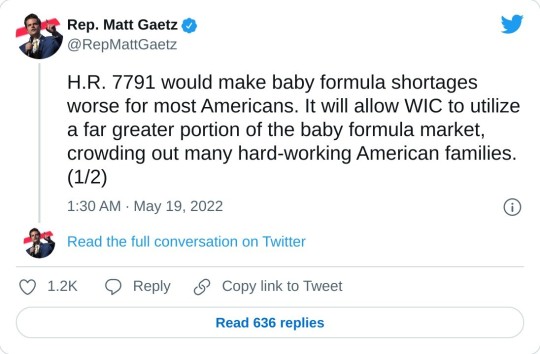
Rep. Jahana Hayes, the Connecticut Democrat who introduced the bill, used food stamps as a younger mother, qualifying even as she was working two jobs while attending school, as she told Hearst Connecticut Media last year.
“Families nationwide are desperately trying to find food for their babies,” Hayes said in a statement following the passage of the bill. “Among the most impacted are mothers and babies enrolled in the WIC program who use formula at roughly double the rate of non-participating families.”
#us politics#news#2022#vice news#baby formula#baby formula shortage#house of representatives#fda#food and drug administration#nbc news#Rep. Rosa DeLauro#Abbott Nutrition#rep. Steve Scalise#president joe biden#biden administration#Defense Production Act#WIC#twitter#Republicans#conservatives#gop#republican hypocrisy#rep. matt gaetz#rep. marjorie taylor greene#rep. lauren boebert#gov. greg abbott#Rep. Kat Cammack#the hill#truthout#Hearst Connecticut Media
64 notes
·
View notes
Text
Biden Regime- Baby Killers
Key Takeaways:
Biden’s FBI shut down a baby formula plant, refusing to say when it will reopen.
This comes as the country suffers a nationwide baby formula shortage.
Biden is responsible for an ongoing supply chain crisis. His administration has done nothing.
7 notes
·
View notes
Link
Republicans are in no meaningful sense “pro-life,” nor are they good people.
I include in this description people who vote for Republican candidates.
Y’all suck.
5 notes
·
View notes

